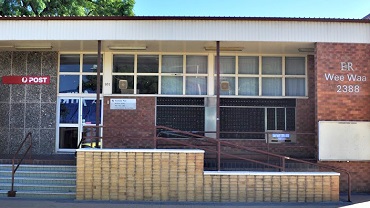The Australian Alert Service is the weekly publication of the Australian Citizens Party.
It will keep you updated on strategic events both in Australia, and worldwide, as well as the organising activities of the Citizens Party.
To subscribe to the Australian Alert Service, it's easy, and it's secure.
Lead Editorial
28 July 2021
Vol. 23 No. 30
Whatever problem a nation is dealing with, there are no solutions that do not require the government to be prepared to make economy-leading investments to meet both shortand long-term needs. Bizarrely, we have a government that doesn’t hesitate to prop up the financial system in a crisis, but is conditioned by 40 years of neoliberalism to shirk responsibility for the investment that can protect the economy from disaster.
For instance, Australia’s governments are pursuing a suppression/elimination strategy for dealing with the COVID-19 pandemic, which involves compulsory quarantine for international travellers in hotels that are not fit for purpose and routinely “leak”. But 18 months into the pandemic, where’s the investment in dedicated quarantine facilities that have been proven to work? In the time they have been talking about them, they could have had many already built.
Likewise the health system: where’s the investment in expanding hospital infrastructure, including recruitment and training of clinical staff, both in major cities and especially in regional areas that have lost so much infrastructure over recent decades? Such investment is both crucial in handling a pandemic threat and fundamentally necessary anyway, given how overwhelmed our hospitals are under normal conditions, and the criminal denial of healthcare services in regional areas. (Why was Australia able to “afford” adequate regional hospital systems back when we were a smaller economy, but through the decades in which we have supposedly grown rich from the “28 years of uninterrupted economic growth” that politicians once liked to crow about, we were no longer able to afford basic hospitals and staff in many regional areas?)
If the government believes its own rhetoric about the threat of climate change, where’s the investment in flood control, fire prevention and -fighting, and coastal protection infrastructure? And, instead of “carbon pricing” and “carbon trading” schemes, where’s the investment in electricity infrastructure that doesn’t produce CO2 emissions but is reliable, like hydro and nuclear?
With the economic cost of Australia’s repeated droughts, and the water disputes in the Murray-Darling Basin, where’s the investment in drought-proofing infrastructure like the Bradfield Scheme in North Queensland and the Clarence River Scheme in Northern New South Wales, both of which can divert flood waters to flow ultimately into the Darling River? Too many environmentalists oppose these solutions, but so do too many economic rationalists, who oppose government investment because they insist everything should be provided by the “free market”.
The fight for a national banking system, including a development bank and a retail postal savings bank, is the fight to get governments to again acknowledge, as governments in previous generations did, that long-term economic investment is their responsibility. The ideological unwillingness in Western nations to do this has weakened our economies, and, in a very twisted way, made us fearful of the country that has most successfully built its economy on public investment— China. This fear is pathetic, because our problems are entirely self-inflicted. A national banking system can turn that all around. The economic potential of Australia is as great as it has ever been, as great as when Dr J.J.C. Bradfield in the 1930s designed the Bradfield Scheme and optimistically predicted Australia would have 40 million people by 1990, and we have the power to unlock that potential if we can re-establish the national banking institutions that are the essential tools for public investment.
The most immediately achievable part of a public banking system is the Commonwealth Postal Savings Bank (CPSB), for which Bob Katter MP intends to introduce legislation in coming weeks. In breaking news, the Narrabri Council in NSW this week passed a resolution moved by Councillor Maxine Booby to endorse the CPSB, motivated by the town of Wee Waa losing its bank branches and ATMs, and $4.50 transaction fees charged by CBA and NAB for using Bank@Post. Elected leaders who want to solve problems will get this solution—keep fighting for it!
Click here for the archive of previous issues of the Australian Alert Service








